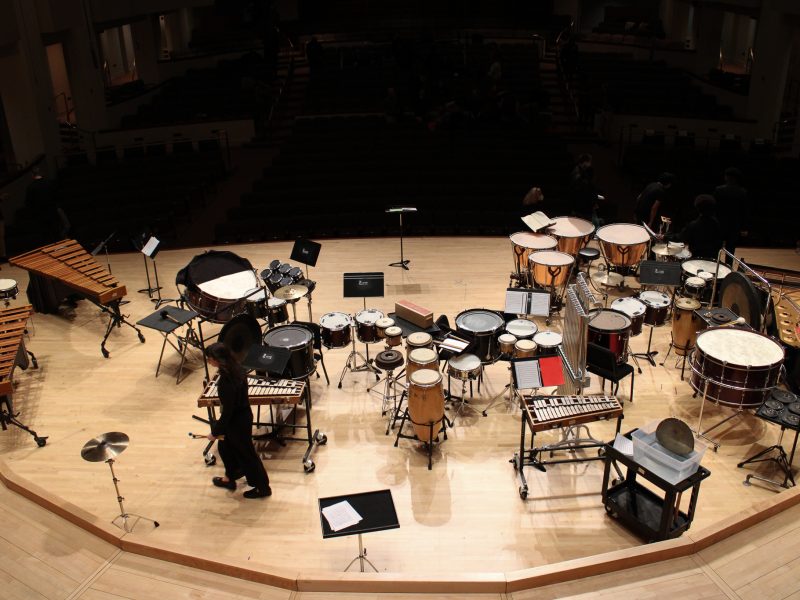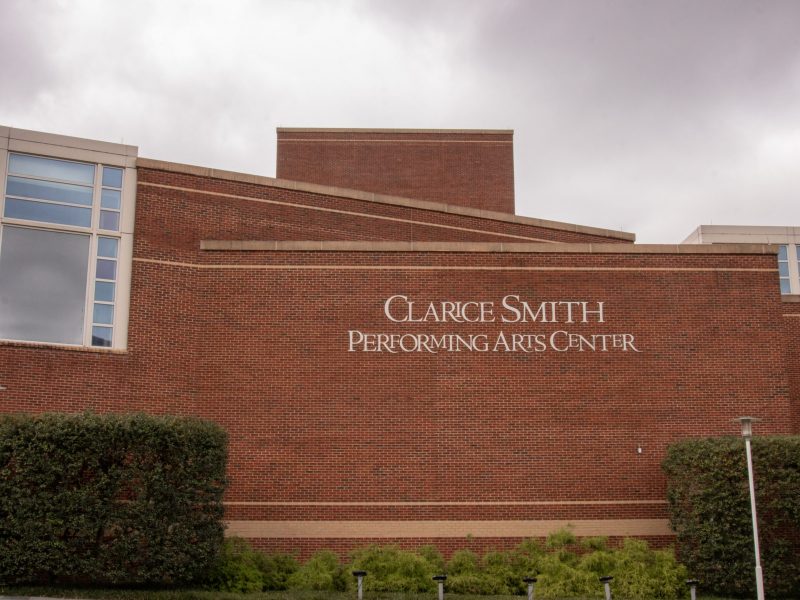Watching fellow students achieve their artistic visions is always a pleasure, but it is much more gratifying when what they produce is not only entertaining, but exceptional. Saturday’s matinee performance of Blood Memories: Women and Violence Repertory, two plays that focus on women as both “victims and perpetrators” of violence, captures this feeling well.
Our country’s current political climate, filled with examples of bigotry, intolerance and frustration, made the two vastly different plays emerge as striking pieces of art.
The plays were presented by Second Season, a student production program within the School of Theatre, Dance and Performance Studies, and is the first performance by the program this year. The first show, Blood Memory, written by Leticia Ridley and directed by Khalid Yaya Long, dealt with themes such as police brutality and sexism, while the second show Prophets of Doom, written by Jonelle Walker and directed by Brittany Ginder, reimagines the Münster Rebellion of 1534.
Blood Memory opened with its cast taking the stage, armed with candles and determined faces looking determined while singing the gospel song “Didn’t It Rain.” The show predominantly focused on the young Dinah Loving, played by Chioma Dunkley, responding to examples of systematic oppression in her own life as well as the lives of those around her.
“We have to recognize the backs and the bodies this country was built on and how those legacies continue to circulate in our contemporary moment,” playwright Leticia Ridley said.
We see Dinah, a free spirit, living under the roof of her uncompromising grandmother Juanita (Sisi Reid) along with her brother Sam (Avery Collins) as she navigates a world that undervalues both female and black bodies. Yet, it isn’t until the second half of the performance that Dinah realizes the extent of this undervaluation, as she becomes disinterested in cultivating the relationships around her, such as with her devoted lover Terrence (James Nelson).
It was clear the actors did not just play their characters, but became their characters over the course of their production, as their performance was not only convincing but powerful. Collins, while not the center of the show, emerges as the star as you could feel his character’s pain and understand his frustrations.
The show, inspired by the current political moment and Angelina Weld Grimké’s anti-lynching 1916 play Rachel, was condensed into a shorter performance for the repertory. The script was emotional and sometimes enraging, yet funny at all the right moments. The characters all served as some sort of contrast to one another, allowing for balanced arguments in how to handle police brutality. Juanita’s rigidity counters the defiance of her granddaughter, while Sam’s headstrong nature conflicts with Terrence’s pleas for reason.
Prophets of Doom, radically different from the first show, depicted the Münster Rebellion from the perspective of Hermann, played by Shan Khan. Displaying such a tragic story on stage seems like a daunting task, yet this show somehow created a lighthearted, entertaining and hilarious performance that kept its audience engaged throughout.
The city of Münster is shaken forever when self-proclaimed Prophet Jan Matthias (Eric Lyness) and his wife Divara (Marley Kabin) arrive to the city, promising to cleanse the converts to Anabaptism. Hille (Julia Roach), Andrea (Katie Gallagher), Heidi (Nikki Lust) and Gerta (Abigail Wasserman), the adherents of Matthias, set the good-humored nature of the show early on when they fawn over Matthias’ eventual successor, the charming Jan Van Leiden (Hunter Stempin).
Despite depicting a serious historical event, the actors give jovial performances as the script carefully inserts dark comedy throughout. While Matthias is likely the most animated character of the first act, Nikki Lust, who also played Prince Bishop for the second half of the performance, stole the show. Lust’s performance was hysterically funny, as she tackled even the fleeting jokes of show with impressive fervor.
While the performance consisted only of the play’s first act, there was sufficient character development and a series of dramatic events that left the audience hungry for more as the actors, after taking their final bow, danced off stage. The repertory concluded with a talk back, during which the audience could ask the performers, directors and playwrights questions to better understand the performances they just watched. This, coupled with the show’s small venue, allowed for an intimate setting that increased the connection between the audience and performers.
When I entered Cafritz Foundation Theatre, I didn’t expect the acting to blow me away. But after watching both performances, it was clear the actors’ performances were so strong, I could not ignore the mastery of their art.



